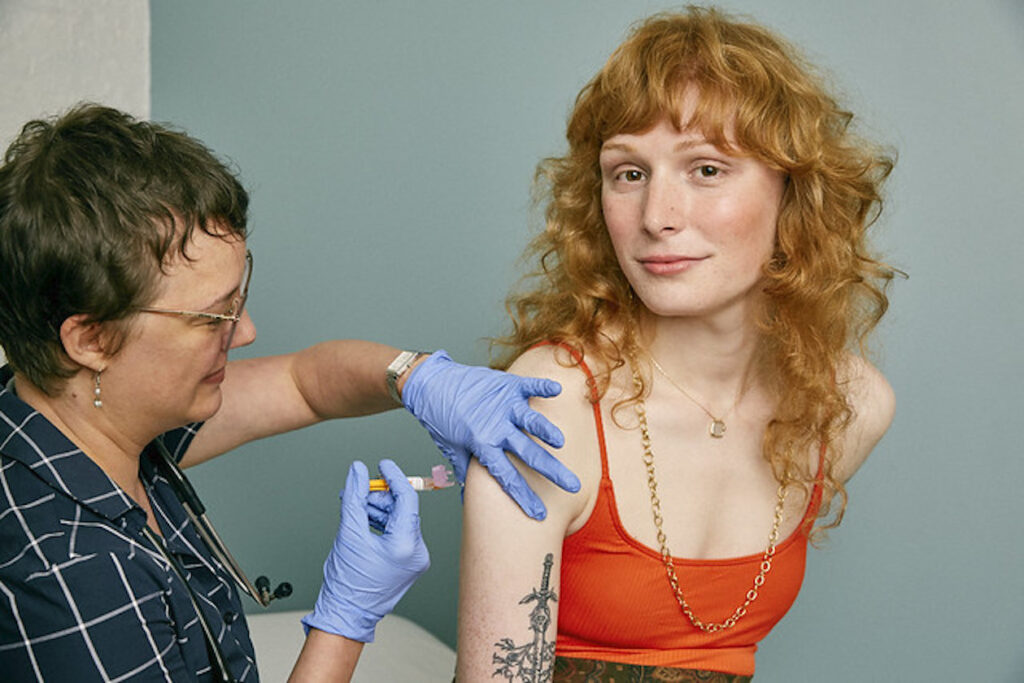All About the HPV Vaccine
Human papillomavirus (HPV) is a very common sexually transmitted infection. In fact, approximately 80% of sexually active adults have had it. There are many strains of HPV, and most are harmless, but certain strains raise the risk of cancer, especially cervical cancer in women. But thanks to the HPV vaccine, first approved in 2006, the number of women suffering from this type of cancer has dropped dramatically. Learn more about HPV, including why it’s linked to cervical cancer, who can get the vaccine, and how to get screened for the virus.
What Is the HPV Vaccine?
HPV vaccines protect against infection from human papillomaviruses, a group of more than 200 related virus strains. More than 40 strains of this virus are spread through direct sexual contact. Several of those strains are known to cause genital warts, while about a dozen strains can cause cervical, anal, oropharyngeal, penile, vulvar, or vaginal cancer.
There are three approved HPV vaccines:
- Cervarix: Protects against HPV types 16 and 18.
- Gardasil: Protects against HPV types 6, 11, 16, and 18.
- Gardasil 9: Protects against HPV types 6, 11, 16, 18, 31, 33, 45, 52, and 58.
Gardasil® 9 is the only HPV vaccine currently available in the United States. In some other countries, Cervarix and Gardasil are still in use.
How Does the HPV Vaccine Protect Against Cancer?
More than 99% of cervical cancers are caused by infection from a high-risk HPV strain. All the HPV vaccines available today protect against the two strains of the virus (HPV 16 and 18) that cause at least 70% of cervical cancers.
According to recent studies, there has been a dramatic decline in precancerous cervical lesions among young women in the United States. In 2008, about 55% of cervical precancers were detected in women under age 30. Just eight years later, that number dropped to 36%. During that same period, the number of cervical precancers detected in women ages 30 to 64 increased, suggesting the change was due to the HPV vaccine, which first became available in 2006.
Scientific findings in Scotland have also been extremely promising. Since an HPV vaccine program for young girls was established there in 2009, the country has seen a 90% decrease in cervical precancer cases in young women.
If the HPV vaccine continues to become commonplace in children’s immunization schedules, some experts predict that cervical cancer and other HPV-related cancers will be eradicated.
Who Can Get the HPV Vaccine?
The HPV vaccine is most effective if an individual receives it before becoming sexually active. For that reason, healthcare providers strongly recommend the vaccine for all kids around age 11 or 12. The vaccine involves two shots received six to 12 months apart.
If you weren’t immunized at the recommended age, you might still be able to get the vaccine. The CDC recommends the HPV vaccine for everyone through age 26 if they were not vaccinated at a younger age.
Men and women can receive the HPV vaccine up to age 45, even though it can’t protect against HPV strains that you’ve already been exposed to. However, it can still provide protection against other strains of the virus if you receive it as a sexually active adult.
Do I Still Need to Get Pap Tests?
The vaccine provides excellent protection against many of the high-risk HPV strains known to cause cancer. However, it does not protect against all HPV types, so it’s important to get regular Pap tests and/or HPV screenings even if you’ve been vaccinated.
Women in their 20s should have Pap tests once every three years to check for abnormal cells. From age 30 to 64, women should have HPV and Pap tests (also known as co-testing) every five years.
Women who want to check their HPV status in between appointments can use an at-home HPV test from Nurx. This test screens for the HPV strains that cause the majority of cervical cancers. The simple vaginal swab test is painless and takes just a few minutes. Once you return the swab to the Nurx partner lab the medical team will be in touch within a week or so to go over your results. If you’re positive for any high-risk strains, it does not mean that you have cancer or even precancer, but it does mean you should follow up with an in-person gynecologist for further testing.
There is no HPV test for men. However, it’s still important for men to get vaccinated to protect against other types of cancer and genital warts and to prevent spreading the infection to their sexual partners.
If you haven’t been vaccinated against HPV, ask your care provider about your options. You should still be able to receive the vaccine as long as you’re under the age of 45. In addition, make sure you’re sticking to the recommended Pap and HPV testing schedule, and consider using Nurx to get at-home HPV tests along with birth control patches, shots, rings, or pills such as Tri-Sprintec and Lutera.
This blog provides information about telemedicine, health and related subjects. The blog content and any linked materials herein are not intended to be, and should not be construed as a substitute for, medical or healthcare advice, diagnosis or treatment. Any reader or person with a medical concern should consult with an appropriately-licensed physician or other healthcare provider. This blog is provided purely for informational purposes. The views expressed herein are not sponsored by and do not represent the opinions of Nurx™.
Image courtesy of SHAPE. Photographer: Heather Hazzan; Wardrobe: Ronald Burton; Props: Campbell Pearson; Hair: Hide Suzuki; Makeup: Deanna Melluso at See Management. Shot on location at One Medical.





